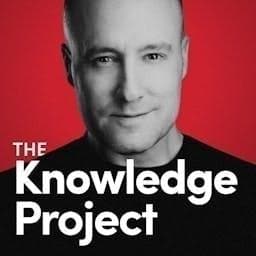What challenges come with taking a marketing strategy global, and what strategies can be created to account for and even take advantage of differences from one market to another? How are differences in Japanese culture reflected in the buying practices of the population?
Katherine Melchior Ray is a global marketing executive and consultant, who also teaches global marketing at UC Berkeley Haas School of Business, and is the author of the book Brand Global, Adapt Local: How to Build Brand Value Across Cultures.
Greg and Katherine discuss the importance of both maintaining global brand consistency and adapting to local cultures. Katherine explains the history and evolving definition of marketing, the balance between data-driven strategies and creative intuition, and the necessity of cultural intelligence in global business.
Throughout the conversation, Katherine shares anecdotes from her diverse career, offering insights into the challenges and strategies for successful global marketing.
*unSILOed Podcast is produced by University FM.*
Episode Quotes:
What does it mean to be a global brand?
13:51: Just because you can access it on a global level does not mean it is going to be relevant to you in your culture. And this is where it is tricky. So we have gone way beyond the Ted Levitt era, where you have global brands, but in order for them to connect, create meaning, which is where value lies, and ultimately loyalty with consumers in different cultures, they need to do both. And this is where the book title came, Brand Global. Be a global brand, hold certain things very consistent, but adapt local, and that is tricky. It is really tricky. Which aspects do you want to hold the same, and which aspects are you willing to flex?
What is cultural intelligence and why is important in leadership
39:21: We all know about emotional intelligence, and I think we have come to realize how important that is in leadership. Well, cultural intelligence takes us one step further. It relies on a lot of the aspects of emotional intelligence, but it adds culture on top of it. And basically, it is the ability to see and, and bridge cultural differences. So you do not have to be an expert in every culture. You do not have to know how to code, I guess, in technology. But you have to have a couple qualities that help you learn how to see what is often not actually being explicitly said with words.
The notion of balance in brands
18:52: When you think of a brand, the strongest brands actually do play simultaneously in opposite, seemingly opposite, directions, but really, those two seemingly opposed directions are complimentary, right? One might be the traditional side, and one is the innovative side. One might be the classical side, and the other is the trendy side. But actually, that duality gives the brand elasticity; it gives it range. So it can reach a lot more customers, and it gives it this inherent dynamism, tension, and excitement.
Story is important for expansion
20:20: The reason story is important is for expansion. You cannot control every aspect of a brand as you expand, right? Because the same people, like if you think of Steve Jobs, he could review every aspect of the computer as it was being designed. But as it was being marketed in different markets, in different countries, in different stores with different salespeople, you cannot control all of that. And so the way to create a form of consistency is by telling the same internal stories, and then those stories go externally so that everyone understands why certain things are in the way that the company operates and the brand shows up in products and services.
Show Links:
Recommended Resources:
- Louis Vuitton
- Philip Kotler
- Theodore Levitt
- Park Hyatt | Masters of Food & Wine
- Sotheby's
- Xiaomi
Guest Profile:
- KatherineMelchiorRay.com
- LinkedIn Profile
- Faculty Profile at UC Berkeley Haas Business School
- Social Profile on Threads
- Social Profile on X
Guest Work:
- Brand Global, Adapt Local: How to Build Brand Value Across Cultures
Hosted by Simplecast, an AdsWizz company. See pcm.adswizz.com for information about our collection and use of personal data for advertising.




































